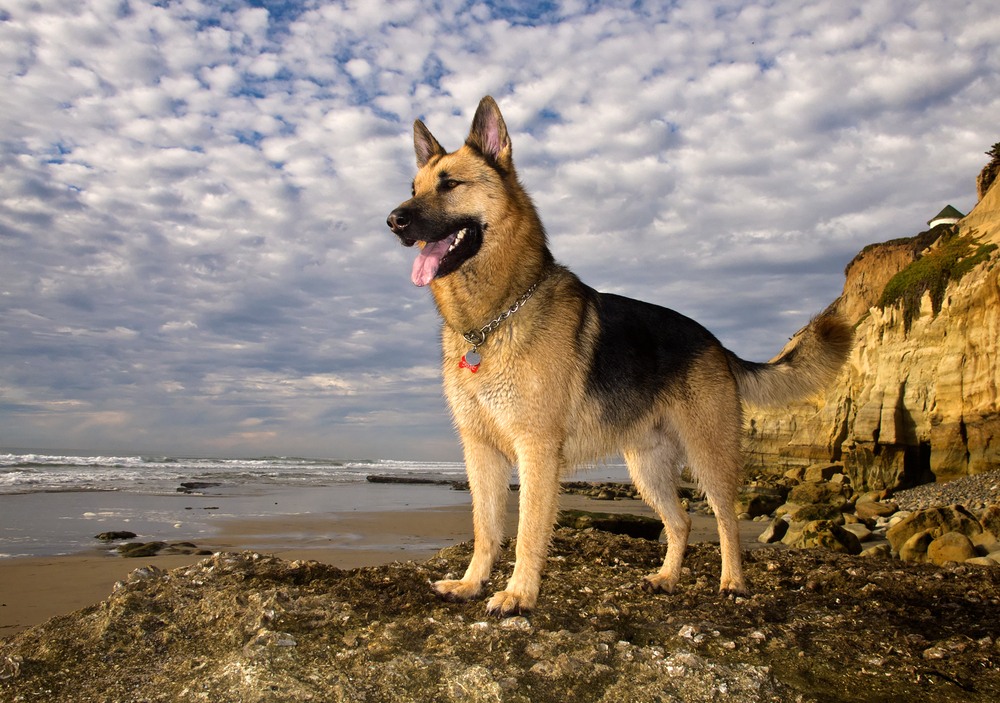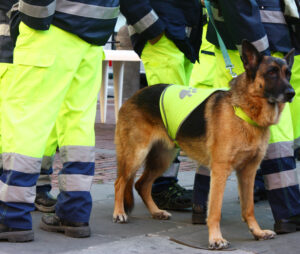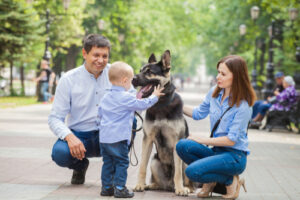German Shepherds, often called “GSDs,” are one of the most recognizable and beloved dog breeds in the world. Renowned for their intelligence, versatility, and loyalty, they have become trusted family pets, service animals, and working dogs. In this comprehensive guide, we’ll cover everything you need to know about German Shepherds, from their origins and traits to their care and training needs.
A Brief History of the German Shepherd Breed
The German Shepherd breed originated in Germany in the late 19th century. Captain Max von Stephanitz is credited with standardizing the breed. His vision was to create a working dog that excelled in herding and protecting livestock. The breed’s intelligence and work ethic soon expanded their role beyond herding to police, military, and service work.
The German Shepherd gained worldwide fame after a GSD named Rin Tin Tin became a Hollywood star in the 1920s. Today, they remain one of the most popular breeds, ranking consistently in the top five according to the American Kennel Club (AKC).
Physical Characteristics
German Shepherds are large, athletic dogs known for their balanced proportions and powerful build.
Size: Males typically stand 24–26 inches tall and weigh 65–90 pounds, while females are slightly smaller at 22–24 inches and 50–70 pounds.
Coat: They have a double coat, with a dense undercoat and a medium-length outer coat. Their coat colors range from black and tan to sable, solid black, and even white.
Lifespan: On average, GSDs live 9–13 years.
Their upright ears, expressive eyes, and confident stance make them one of the most iconic breeds.
German Shepherd Temperament and Personality
German Shepherds are known for their intelligence, loyalty, and adaptability. They are:
Highly Intelligent: Ranked as the third smartest dog breed, German Shepherds are quick learners capable of mastering commands and complex tasks.
Loyal and Protective: They form strong bonds with their families and are naturally protective, making them excellent guard dogs.
Versatile: Whether as a herding dog, police canine, or therapy animal, GSDs excel in a variety of roles.
Energetic and Active: They thrive in environments where they have plenty of physical and mental stimulation.
While they are loyal and loving, they can be reserved with strangers, a trait that adds to their reputation as excellent watchdogs.
Care Requirements for German Shepherds
Owning a German Shepherd is a rewarding experience, but it requires commitment to meet their care needs.
1. Diet and Nutrition
German Shepherds need a high-quality, protein-rich diet to support their active lifestyle.
Puppies: Feed a large-breed puppy formula to promote healthy growth and avoid joint issues.
Adults: Opt for a diet that supports joint health and muscle maintenance. Look for foods with glucosamine and omega-3 fatty acids.
Portion Control: Overfeeding can lead to obesity, which strains their joints. Follow your vet’s guidelines for portion sizes.
2. Exercise Needs
GSDs are energetic dogs that require regular exercise to stay healthy and happy.
Daily Activity: Provide at least 1–2 hours of exercise, including walks, runs, and playtime.
Mental Stimulation: Engage them with puzzle toys, training sessions, or agility courses to challenge their intellect.
Variety: Activities like hiking, fetch, and swimming are great for keeping them physically and mentally fit.
3. Grooming Requirements
Their double coat requires regular grooming, especially during shedding seasons.
Brushing: Brush your GSD’s coat 2–3 times a week to reduce shedding and prevent matting.
Bathing: Bathe them as needed, but not too frequently to avoid drying out their skin.
Nail Trimming and Dental Care: Trim their nails regularly and brush their teeth to prevent dental issues.
Training and Socialization
German Shepherds are highly trainable, but early socialization and consistent training are essential.
Puppy Training
Begin with basic commands like “sit,” “stay,” and “come.”
Use positive reinforcement, such as treats and praise, to encourage good behavior.
Socialize your puppy by exposing them to various people, animals, and environments.
Advanced Training
Once they master basic obedience, you can teach more complex tasks or enroll them in agility or tracking classes.
GSDs thrive on structured tasks, making them excellent candidates for advanced obedience or service dog training.
Behavioral Tips
German Shepherds can develop separation anxiety or destructive behavior if left alone for long periods. Ensure they have plenty of exercise and mental engagement to prevent boredom.
Common Health Issues in German Shepherds
Like all breeds, GSDs are prone to certain health problems.
1. Hip and Elbow Dysplasia
This genetic condition affects joint alignment and can lead to arthritis. Maintaining a healthy weight and providing joint supplements can help reduce the risk.
2. Degenerative Myelopathy
A neurological condition that affects mobility in older dogs. While there’s no cure, supportive care and physical therapy can improve their quality of life.
3. Bloat (Gastric Dilatation-Volvulus)
This life-threatening condition involves the stomach twisting. Feed your GSD smaller meals and avoid vigorous activity after eating to reduce the risk.
4. Allergies and Skin Issues
Their sensitive skin can develop allergies to food, pollen, or fleas. Regular grooming and a proper diet can help manage these issues.
Routine vet check-ups are essential to monitor their health and address any concerns early.
Are German Shepherds Right for You?
Before bringing a German Shepherd into your home, consider the following:
Time Commitment: GSDs require daily exercise, training, and socialization.
Living Space: While they adapt well to different living environments, they need space to move and play.
Family Fit: German Shepherds are excellent family dogs and do well with children when properly trained and socialized.
Experience Level: They are ideal for experienced dog owners who understand their training and care needs.





